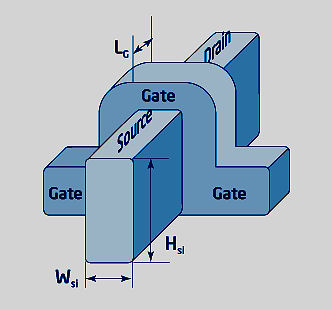Intel Reveals Tri-Gate 22nm Atom Plans For 2013


Intel has revealed more details on its latest push into the mobile chip market, specifying that its latest 22-nanometre manufacturing process for integrated processors, or systems-on-a-chip (SoC), will debut for its Atom devices sometime in 2013.
The chips will introduce Intel’s “three-dimensional” Tri-Gate transistor technology into mobile devices, Intel’s latest effort to compete with mobile SoCs based on ARM technology and manufactured by the likes of Apple, Nvidia, Qualcomm and others. The battle is particularly important for Intel as it watches the decline of the PC market it has depended upon in the past.
Next generation Atom
Intel’s current mobile SoCs, sold under the Atom name, are manufactured using features measuring 32nm, while others, including Qualcomm, have already moved to 28nm processes. Intel already uses 22nm manufacturing processes for its PC chips, but has yet to shift its more complex SoCs to the process.
In a paper presented at the 2012 International Electron Devices Meeting (IEDM) in San Francisco on Monday Intel specified that its next-generation Atom chips will use a 22nm manufacturing process specially adapted for low-power SoC products, incorporating low standby power and high-voltage transistors along with high-speed logic transistors.
The next-generation Atom chips will be aimed at “premium smartphones, tablets, netbooks, embedded systems, wireless communications, and ASIC products”, Intel said.
This article appeared on TechWeekEurope. Click here for the full story.
Recent Posts
Flashpoint enters new chapter with global partner programme
Security vendor Flashpoint debuts partner programme following $28m funding
Channel partner “disconnect” hindering growth
Complex buying journeys and sprawling partner networks hampering customer experience, says Accenture
Cyxtera launches global channel partner programme
Datacentre provider Cyxtera says launch is “milestone in our go-to-market strategy”
US IT provider brings mainframe services to UK
Ensono highlights importance of mainframes still to major industries
VASCO and Nuvias expand distribution across EMEA
Security vendor VASCO looks to replicate UK and German set up across EMEA
Splunk says channel investments driving growth
Splunk details investment in Partner+ programme at .conf2017

